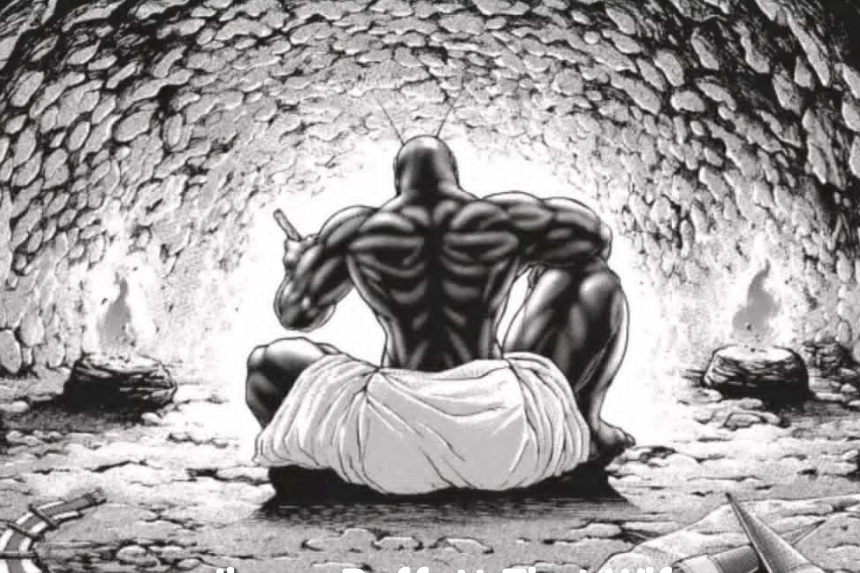Babajitone: Exploring the Meaning, Relevance, and Influence
When you hear the name Babajitone, it may sound strange or unusual.However, it’s worth diving deeper into the context and understanding its meaning, significance, and the impact it has had in various fields. Whether you’re wondering if it’s a name, a term, or something else entirely, we’ll break it down, examining its roots and its role in the current world.
In this blog post, we will provide detailed information on Babajitone, focusing on its cultural significance, its use in modern contexts, and what makes it stand out. Our approach is guided by factual, valuable, and clear data, helping you understand the full scope of this term while ensuring the information is reliable and well-researched.
What is Babajitone?
At its core, “Babajitone” is a name of African origin, often used in Yoruba-speaking communities. The name is primarily found in Nigeria, where Yoruba culture is one of the largest ethnic groups. The Yoruba language is rich with meaning, and many names carry deep significance, reflecting the hopes, beliefs, and values of the family or community.
Baba: This part of the name generally refers to father or a paternal figure. In the context of Yoruba naming customs, “Baba” symbolizes wisdom, respect, and sometimes leadership.
Jitone: The second part, “Jitone,” is more abstract and can translate to the idea of someone who is “restored” or “reborn,” though its meaning can vary slightly depending on context. It could refer to a spiritual rebirth or restoration of strength, which is common in many Yoruba names that reflect positive growth, renewal, and resilience.
So, when combined, Babajitone can be understood as “a father who restores” or “a wise one who brings renewal.” Names in the Yoruba culture are incredibly significan. It carries with it an essence of leadership, wisdom, and restoration.
The Cultural Significance of Babajitone
In Yoruba culture, names are not just identifiers. They carry profound meaning and are often linked to the spiritual beliefs of the family. The practice of naming a child is a highly respected tradition, and many Yoruba names are chosen based on circumstances surrounding the child’s birth or the desires of the parents for the child’s future.
For instance, a child born after a difficult or traumatic time might be given a name like Babajitone to signify the restoration of peace and hope. It’s common for names like this to reflect the child’s relationship to the family’s journey, with a focus on rejuvenation and healing.
The Yoruba culture is known for its respect for elders, and the idea of wisdom, guidance, and healing is deeply embedded in their belief system. Thus, the name Babajitone carries an aura of respectability and trust, creating a strong foundation for the individual who bears it.

Babajitone in Contemporary Contexts
Today, names like Babajitone continue to carry cultural significance, but they can also take on new meanings and roles in modern contexts. The Yoruba diaspora, particularly in countries such as the United States, the United Kingdom, and Canada, has led to the global spread of Yoruba culture, including its unique naming practices. As more people of African descent connect with their cultural heritage, names like Babajitone are being adopted and celebrated across different parts of the world.
Moreover, Babajitone as a name is often used in religious and spiritual contexts. The idea of restoration and renewal is deeply embedded in the African spirituality practiced by many Yoruba individuals, where names are seen as part of a larger spiritual journey. Therefore, someone with the name Babajitone might be seen as someone with the capacity for bringing positive change, offering wisdom, or helping others recover from hardship.
Babajitone in the Arts and Media
As global awareness of African cultures grows, we see more names and figures from Yoruba culture gaining recognition in music, film, literature, and art. In these spaces, individuals with names like Babajitone could be seen as symbolic of wisdom, strength, and a connection to Africa’s rich history and traditions.
For example, musicians, filmmakers, and authors who identify with their African roots may use names like Babajitone as a way to express their cultural identity. The use of such names in these industries could play a role in bringing African stories, traditions, and philosophies to a wider audience. Whether through music that blends African rhythms with modern genres or films that portray the beauty of Yoruba culture, names like Babajitone symbolize a bridge between the past and the future, making the individual’s heritage known while continuing to make an impact on global culture.

The Influence of Babajitone in a Broader Sense
The name Babajitone also aligns with larger themes that resonate within the African community, especially in contexts of rebuilding and personal growth. In both African traditions and modern African American culture, names often have a sense of hope or strength embedded in them. For example, a name like Babajitone, which signifies “restoration,” could inspire the bearer to overcome adversity, much as the name itself carries the essence of renewal.
The symbolism of names like Babajitone also extends beyond the Yoruba community. People who adopt such names, whether through cultural connection or as a way to honor African heritage, bring with them a broader understanding of what it means to heal, restore, and guide others. In the face of challenges, individuals named Babajitone might be viewed as those who lead others out of darkness into the light, offering wisdom, guidance, and hope for the future.
Conclusion: The Enduring Legacy of Babajitone
Babajitone is more than just a name; it represents resilience, wisdom, and renewal deeply rooted in Yoruba culture. From its origins in Nigeria to its growing recognition across the globe, Babajitone carries a profound significance as a symbol of restoration, healing, and leadership.
Whether viewed through the lens of cultural identity, spiritual meaning, or personal empowerment, Babajitone embodies the strength and values of an entire heritage. As the world becomes more interconnected, names like Babajitone continue to bridge the past and the present, fostering a sense of belonging and pride among those who embrace their roots.
In today’s evolving society, where heritage and identity play a crucial role, Babajitone serves as a reminder of the power of tradition, the importance of renewal, and the ability to inspire positive change.
FAQs About Babajitone
1. What does the name Babajitone mean?
Babajitone is a Yoruba name that can be broken down into “Baba,” meaning father or elder, and “Jitone,” which relates to restoration or renewal. Together, it signifies “a father who restores” or “a wise one who brings renewal.”
2. Where does the name Babajitone originate from?
Babajitone has its roots in the Yoruba culture of Nigeria, where names hold deep meaning and are often linked to spirituality, history, and personal destiny.
3. Is Babajitone a common name?
Babajitone is a unique name that is not widely common, making it stand out in both Yoruba-speaking communities and globally.
4. What is the cultural significance of Babajitone?
In Yoruba culture, names reflect personal identity, family history, and spiritual beliefs. Babajitone signifies wisdom, restoration, and leadership, often symbolizing resilience and hope.
5. How is Babajitone used in modern contexts?
Today, Babajitone is not only a name but also a representation of cultural pride, spiritual strength, and renewal. It is recognized in global Yoruba communities and sometimes used in artistic and religious contexts.
6. Can non-Yoruba people use the name Babajitone?
Yes, people from various backgrounds can adopt the name Babajitone, especially if they appreciate its meaning and cultural significance. It can serve as a way to honor Yoruba heritage and values.






